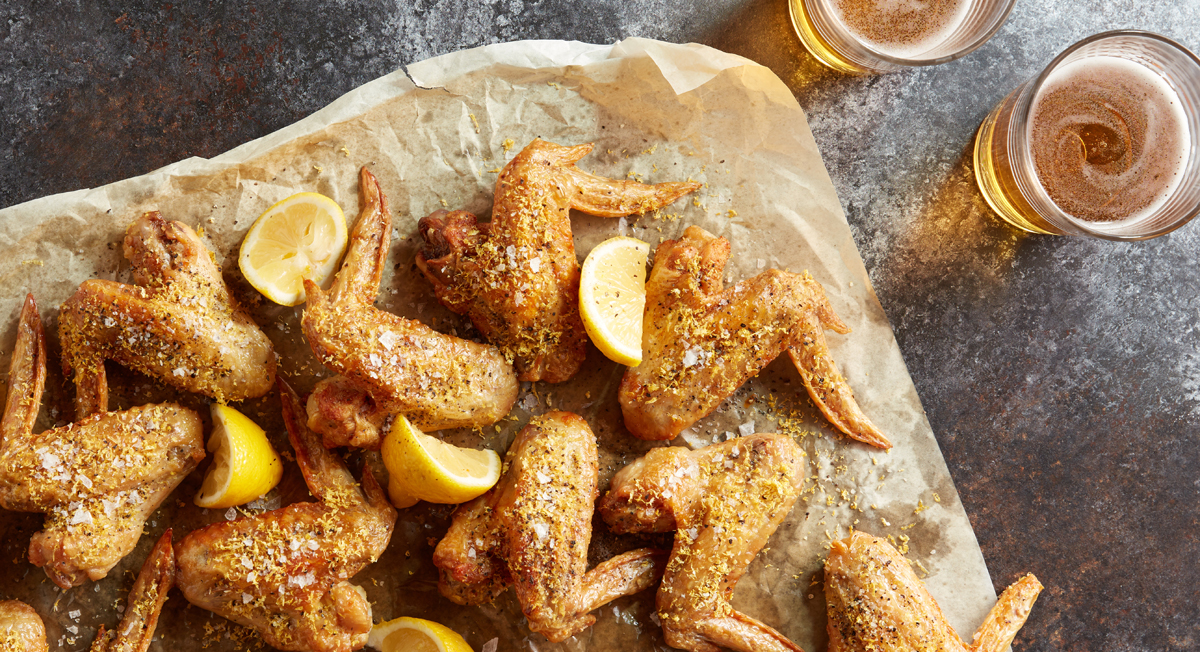9 Uses for Duck Fat at Home
Publish Date: March 11, 2022
Last Update: January 25, 2026
Gone are the days before refrigeration when foods needed to stay preserved for months at a time. Thank goodness, right? But that doesn’t mean modern cooking can’t take a cue from confit, a French curing method involving simmering ingredients in a pool of flavorful fat.
Duck Fat Health Benefits
Although fat has had its fair share of bad press over the years, it’s actually an essential ingredient in our diets. According to Dr. Mark Hyman, fat is “one of the body’s most basic building blocks.” You may ask yourself, is duck fat good for you? Like coconut oil and olive oil, duck fat contains healthy monounsaturated fat (which may help lower cholesterol) and omega-3’s (which may help reduce inflammation). Duck fat does have some saturated fat, but this is where the adage “everything in moderation” applies [1].
EPIC’s Story
It’s a philosophy shared by Taylor Collins and Katie Forrest, two former vegetarians-turned-Paleo enthusiasts who started their own food company—EPIC—after noticing how energized they felt when incorporating healthy fats into their meals. EPIC makes bone broth, protein bars, and animal fats from livestock raised on open pastures and sourced from organizations committed to the highest animal welfare standards.
Cage-Free Duck Fat is one of EPIC’s most popular products, and for good reason. Quite simply, it’s mild flavor helps elevate ordinary ingredients into memorable dishes for weeknights or special occasions alike. It also has a high smoke point (375 degrees), and unlike butter or olive oil, duck fat can be recycled and used again [2].
Duck Fat Nutrition
As stated above, duck fat is a great source of healthy monounsaturated fats and omega-3’s that may help lower cholesterol and reduce inflammation [3]. Here’s a look at the nutritional facts duck fat has to offer in one 14g serving:
- Calories: 130cal
- Protein: 0g
- Fat: 14g
- Saturated fat: 4.5g
- Fiber: 0g
- Sugar: 0g
- Cholesterol: 15mg
Cooking With Duck Fat
With a high smoke point of 375°F, duck fat offers more range with whatever cooking method you choose and can handle high heat cooking, making it a go-to everyday option. Everything from a quick sauté to a deep fry is on the table. And when you need a crispy finish, look no further than duck fat for the ultimate exterior. From vegetables to meat, you can use it for almost everything (see our recipe ideas below) but whatever you do, don’t miss trying it with roasted potatoes. Duck fat is also keto-friendly, Whole30-compatible, and paleo, so it works for a range of diets and lifestyles [4] [5] [6].
How to Store Duck Fat
When it comes to keeping your duck fat fresh, this kitchen staple has a longer shelf-life than most. If properly stored in the fridge, it should keep for at least six months, maybe longer [7]. If it’s been a few months, just give it the sniff test before using—you’ll be able to smell if it’s gone rancid. To keep even longer, portion duck fat into ice cube trays and freeze, then just melt one in a pan whenever you need the fat.
Duck Fat Recipes
If you’re intrigued, here are a few ways you can cook your favorite recipes with duck fat!
1. Popcorn
Instead of tossing popped kernels with melted butter, drizzle popcorn with warm duck fat before adding your favorite spices. For an herbal spin, use dried rosemary and thyme, salt, and grated Parmesan. For a spicier bite, dust on a combination of smoked paprika, cayenne, and lime zest.
2. Potatoes
Crispy, oven-roasted potatoes will have even more flavor when you use duck fat and fresh, woody herbs like rosemary and thyme. You can also swirl duck fat into mashed potatoes instead of butter, or make this elegant take on domino potatoes.
3. Soup
Making soup for dinner? Start by warming duck fat in the pot instead of olive oil, then sauté your aromatics. Cook the soup as you normally would, and enjoy an extra luscious flavor in the finished product.
4. Grilled Cheese
What goes better with soup than a dunkable grilled cheese sandwich? For a crisp texture, slather the bread with duck fat before grilling.
5. Mushrooms
Mushrooms already boast an earthy flavor that pairs well with everything from meat to seafood. When sauteed with duck fat, though, they’ll taste even richer!
6. Brussels sprouts
Cook with duck fat instead of olive oil before roasting, and you’ll have a side dish that’s so good everyone will want seconds.
7. Chicken
If you usually slather a whole chicken with butter or oil before roasting, try cooking with duck fat for a crisper, more flavorful skin.
8. Steak
Instead of coating a cast iron pan with butter, add a spoonful of duck fat before searing your meat.
9. Kale chips
Amp up this light snack by massaging kale leaves with a bit of duck fat before sliding the tray into the oven.
Photo credit: Ella Ciamacco








